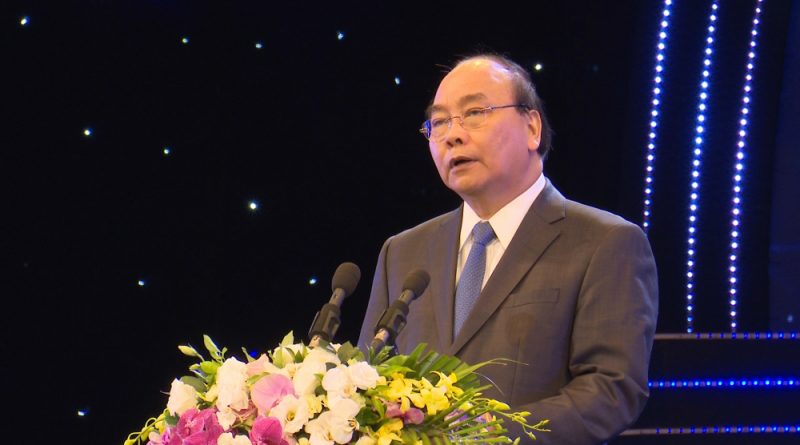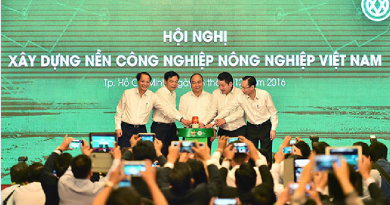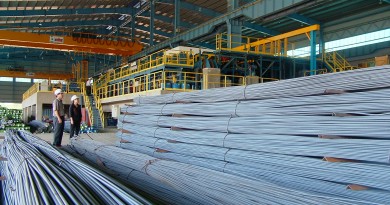PM urges more high-tech foreign investment, promises better incentives
Prime Minister Nguyen Xuan Phuc told participants at a recent conference that while foreign investment plays a pivotal role in Vietnam’s economy and development, most foreign-invested firms still use mid-level technologies and only few global high-tech corporations operate in the country.
PM Phuc was addressing an October 4 conference entitled, “30 Years of FDI Mobilization in Vietnam: New Vision and Opportunities in New Era” held by the Ministry of Planning and Investment (MPI).
Employment for millions
Minister of Planning and Investment Nguyen Chi Dung said in the three decades since the Law on Foreign Investment took effect, the FDI sector has increasingly proven its pivotal role in the national economy.
As of the end of August 2018, Vietnam had attracted 26,500 valid FDI projects with total registered capital of US$334 billion. Of the sum, roughly US$184 billion have been disbursed.
FDI has contributed important capital to total social investment. The share of FDI in total social investment capital increased to 23.7 percent in 2017, while its contribution to the country’s GDP surged to 19.6 percent in 2017. In addition, state budget revenues from the FDI sector have recorded remarkable growth, increasing from US$1.8 billion during the 1994-2000 period to about US$8 billion in 2017.
The FDI sector has created direct employment for 3.6 million workers and indirect jobs for more than five million others.
The attraction and use of FDI have contributed positively to shaping the socialist-oriented market economy, improving the business and investment environment, and enhancing international cooperation and integration.
PM Phuc told participants that the open-door approach to foreign cooperation was the correct policy by the Vietnamese party and state. The FDI sector has become an integral part of the Vietnamese economy.
However, the attraction and use of FDI have revealed a number of shortcomings and limitations, which need to be resolved soon. In addition to lack of high-tech investors, PM Phuc noted that the links and spillover effect of the FDI sector on other sectors of the domestic economy have not been productive; technology transfer has not achieved the expected results; and the proportion of investment by transnational corporations has been low.
Current FDI projects in Vietnam mainly focus on assembly and outsourcing stages at low local rates, resulting in low added value. Some foreign-invested enterprises have also contributed to environmental pollution, and engaged in transfer pricing and tax fraud, he said, adding that state management of the FDI sector is lax, and consistency at all levels of FDI attraction policy is lacking.
Less outsourcing and assembly
|
Based on the experience of the past 30 years, PM Phuc set out five points regarding future FDI attraction. First, Vietnam affirms that the FDI sector has become an important integral component of the Vietnamese economy. Vietnam will expand its focus to include not only foreign capital but also cooperation in management, strengthening merger and acquisition activities, ensuring environmental protection and social benefits.
Vietnam will play a more active role in choosing suitable FDI projects, he said, in order to phase out some outsourcing and assembly, improve the level of production, and increase the autonomy of the national economy.
PM Phuc assured his listeners that Vietnam respects investors’ legitimate interests in Vietnam and would continue to promote cooperation with them, promising to improve preferential investment policies and place them under closer supervision. The Vietnamese government is determined to build a more favorable and competitive investment environment, PM Phuc affirmed.
Vietnam is encouraging investment in advanced eco-friendly technologies, intensive-labor projects, and digitalization. It will also strengthen cooperation with multinational corporations to help local businesses integrate into regional and global value chains.
PM Phuc said Vietnam’s legal framework must be amended in line with international standards and commitments stipulated in new-generation free trade agreements. He also tasked ministries, agencies and localities to encourage domestic businesses to beef up joint-venture models, especially in high and new technological projects.
Source: ven.vn






